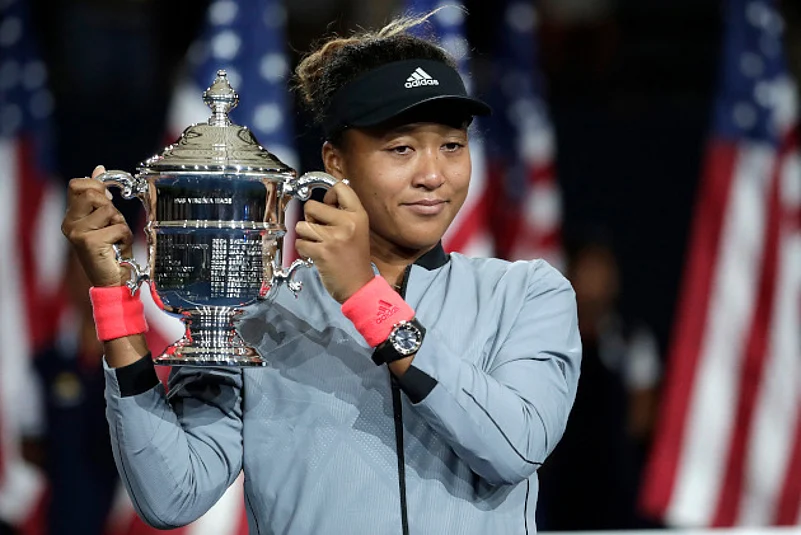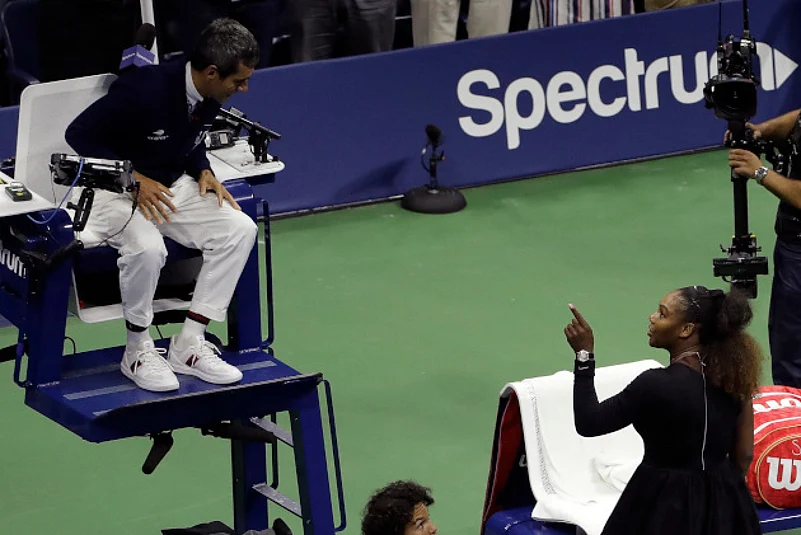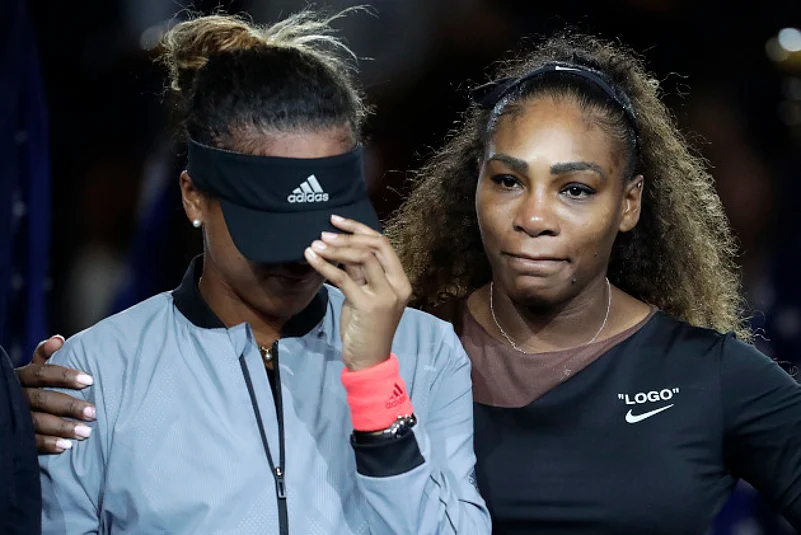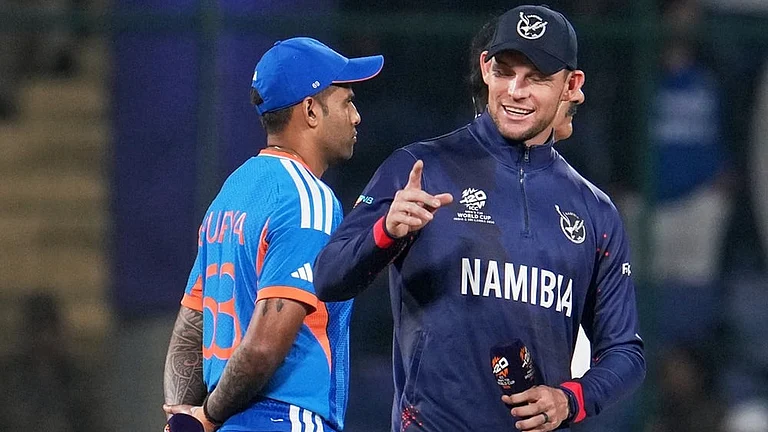Naomi Osaka's dream of playing against her idol Serena Williams in a Grand Slam final finally fulfilled but the experience of taking on one of the most temperamental women players left a bittersweet aftertaste for the Japanese player.
Early Sunday morning, Osaka became the first ever Japanese player to win a Grand Slam singles title after defeating American legend in the final of 2018 US Open.
The 20-year-old took one hour and 19 minutes to beat the 23 Grand Slam singles winner in straight sets 6-2, 6-4 in front of a largely partisan crowd at Flushing Meadows.
But what should have been a moment of glory for Osaka was overshadowed by Williams’ on-court meltdown, even though the senior pro was magnanimous enough to congratulate the 20-year-old on her victory, and for making history.

Then there were boos from the fans during the trophy ceremony, directed somewhere. In another time and place, it could have easily become an altogether different experience for everyone.
So, what really happened?
Former world number one Williams failed to match Osaka's fearless game and lost the first set 6-2 in just 34 minutes. The sixth-time US Open champion was broken twice, in back-to-back service games, giving Osaka a 5-1 lead. The Japanese made no fuss and wrapped up the set.
Williams held her serve to start the second set 1-0, but the chair umpire Carlos Ramos gave her a code violation warning for coaching after the game. She disputed the warning vehemently, claiming her innocence. Williams then said something along the lines of 'I don't cheat to win, I'd rather lose', and carried on with the match.
Unlike in the WTA circuit, coaching is not allowed during Grand Slam tournaments.
But Williams is also known for her petulance.
She broke Osaka for the first time in the match, in the fourth game to take a 3-1 lead, and it seemed like the legend has got her acts together. Then…
Williams received a second code violation warning for smashing her racquet after losing her serve, which made it 3-2. The 13-point game witnessed four break points. With two warnings, he umpire docked Williams a point.

Osaka started the next game at 15-0 and easily held, on love. But that's not over. All these while, Williams kept unleashing verbal volleys towards the umpire, demanding an apology from the Portuguese.
It was followed by a game penalty for the verbal abuse. Williams refused to take the court and demanded the presence of referee Brian Early. It was followed by her argument, that losing a game for demanding an apology is not fair.
At 3-5, Williams won three points in no time to make it 4-5. But a determined Osaka, playing her first Grand Slam final that too in a volatile environment, kept her cool to win the match in the second opportunity.
After the match, Williams refused to sake hand with the umpire and kept demanding the apology. Ramos walked off the court and didn't return for the ceremony.
By then Flushing Meadows has been turned into a stage for protest, with boos filling the air. With the crowd standing the behind Serena, but not necessarily against the victor, the trophy ceremony was conducted without delay.
Osaka, for all her troubles to win the coveted the trophy, ended up crying. And it took a few words from Williams to make her smile again.
Minutes after the trophy presentation, USTA Chairman of the Board and President Katrina Adams released a statement hailing Williams as "a true champion" for showing "class and sportsmanship" on the podium.
But not many would be happy with Williams’ on-court conduct today.
Osaka became the second Asian player to win a Grand Slam singles title after Li Na of China, who won it twice – the French Open in 2011 and Australian Open in 2014.
It was Osaka's first final appearance in a Major final. The win helped her climbed to a career-best ranking of seven. Besides, she also took home a winner's cheque for $3.8 million.
Williams has lost back-to-back Grand Slam finals for the second time in her career. In July early this year, she lost the Wimbledon final to German Angelique Kerber.
In 2016, Williams lost both Australian and French Open finals to Kerber and Spaniard Garbine Muguruza respectively. She is still chasing the elusive 24th Major title to equal Aussie Margaret Court's all-time record. She already is the most successful player in the Open Era.


























